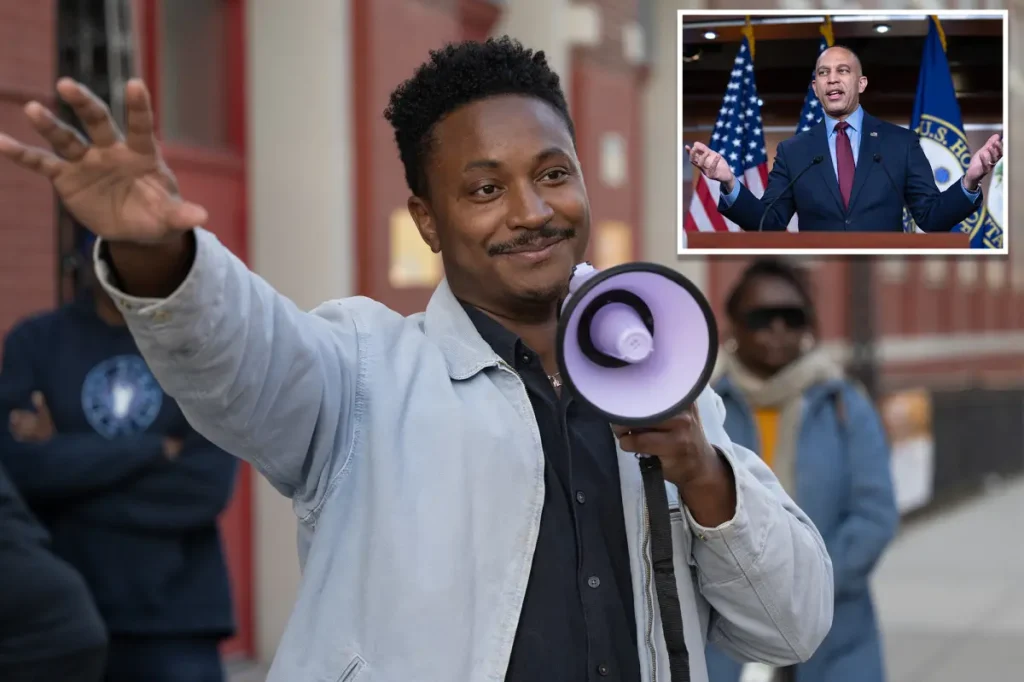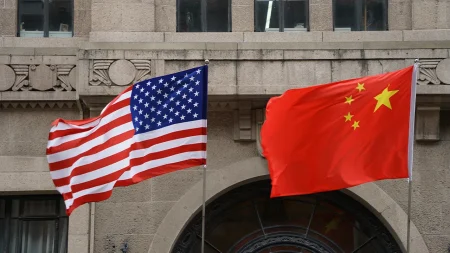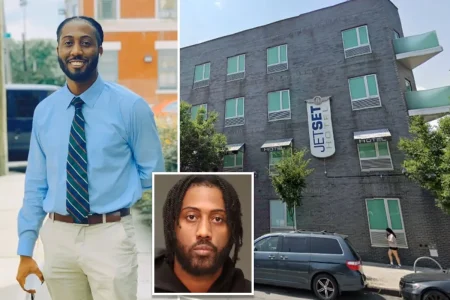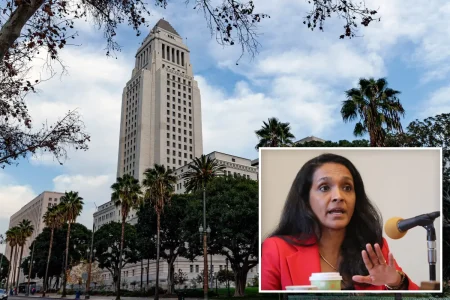Brooklyn Councilman Chi Ossé Makes Bold Move to Challenge Democratic Leader Hakeem Jeffries
In a surprising political development that has stirred the waters of New York Democratic politics, Brooklyn Councilman Chi Ossé has officially filed paperwork with the Federal Elections Commission to run for Congress against House Minority Leader Hakeem Jeffries. This move represents a significant challenge from the political left, as Ossé, a young Gen-Z progressive who recently joined the Democratic Socialists of America, seeks to unseat one of the most powerful Democrats in Washington. Jeffries, who has represented New York’s 8th Congressional District since 2013, stands as a potential future Speaker of the House should Democrats regain the majority in the upcoming midterm elections. The district, which stretches from Bedford-Stuyvesant in Brooklyn to Coney Island and includes portions of Queens, has been Jeffries’ political home base for over a decade, making Ossé’s challenge particularly bold.
The timing of Ossé’s announcement has raised eyebrows across the political spectrum, especially given recent conversations with Mayor-elect Zohran Mamdani, himself a democratic socialist who reportedly discouraged Ossé from pursuing this challenge. According to sources close to the situation, Mamdani has been working to build bridges with establishment Democratic leaders like Jeffries, viewing these relationships as crucial for advancing his agenda in New York City and countering potential threats from Republicans and the Trump administration. Despite this counsel, Ossé appears determined to “strike while the iron is hot,” believing that the recent progressive momentum following Mamdani’s mayoral victory provides an opportune moment to challenge establishment Democratic leadership. This decision highlights growing tensions within the Democratic Party between its progressive and moderate wings.
Ossé’s congressional bid emerges within a context of increasing progressive representation in New York politics. The 8th District overlaps with areas represented by other democratic socialist legislators, including State Senator Jabari Brisport and Assemblywoman Phara Souffrant Forrest. This growing progressive presence may provide Ossé with grassroots support, though it remains unclear whether this will translate into sufficient electoral strength to seriously challenge Jeffries, who has deep ties to the Democratic establishment and access to significant campaign resources. For his part, Jeffries is likely to receive overwhelming institutional support from the Democratic Party, whose leaders would be reluctant to see their potential future Speaker vulnerable to an insurgent challenge from the left.
When asked about Ossé’s congressional aspirations, Mayor-elect Mamdani offered measured comments that appeared designed to acknowledge Ossé’s contributions while subtly discouraging his congressional bid. “I appreciate the great work that Councilmember Ossé has done on the Council, especially for tenants,” Mamdani stated. “I believe that there are many ways right here in New York City to both deliver on an affordability agenda and take on the authoritarian administration in the White House.” This diplomatic response reflects Mamdani’s delicate position – maintaining alliances with progressive colleagues like Ossé while simultaneously building working relationships with establishment figures like Jeffries who could be crucial allies in governing New York City and resisting Republican initiatives at the federal level.
The Progressive Change Campaign Committee, a left-leaning political organization, has also weighed in against Ossé’s challenge, suggesting that the timing is inopportune. “Just after Mamdani’s big victory and House Democrats holding firm during the shutdown fight, it is not the right moment to launch a primary challenge to Hakeem Jeffries,” stated Adam Green, the group’s co-founder. This sentiment reflects concerns among some progressives that challenging key Democratic leaders during a period requiring party unity might prove counterproductive to broader progressive goals. The question of strategic timing has become central to discussions about Ossé’s bid, with some progressive strategists questioning whether challenging a potential future Speaker represents the most effective use of progressive political capital at this moment.
As this primary challenge unfolds, it will serve as a notable test case for the evolving dynamics within the Democratic Party. Ossé’s challenge to Jeffries represents more than just a local Brooklyn political contest – it symbolizes the ongoing negotiation between progressive and moderate Democratic visions at a time when party unity is being tested by external pressures from Republicans. For voters in New York’s 8th District, the coming primary will present a clear choice between Jeffries’ established leadership and institutional approach versus Ossé’s more progressive vision and grassroots energy. Regardless of the outcome, this contest will likely influence how similar challenges are evaluated and approached within Democratic politics nationwide, particularly as younger, more progressive candidates continue to emerge and seek paths to federal office.








